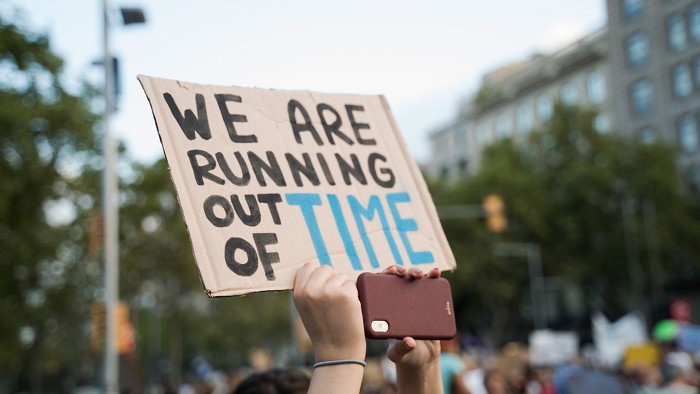Advertisement
Grab your lab coat. Let's get started
Welcome!
Welcome!
Create an account below to get 6 C&EN articles per month, receive newsletters and more - all free.
It seems this is your first time logging in online. Please enter the following information to continue.
As an ACS member you automatically get access to this site. All we need is few more details to create your reading experience.
Not you? Sign in with a different account.
Not you? Sign in with a different account.
ERROR 1
ERROR 1
ERROR 2
ERROR 2
ERROR 2
ERROR 2
ERROR 2
Password and Confirm password must match.
If you have an ACS member number, please enter it here so we can link this account to your membership. (optional)
ERROR 2
ACS values your privacy. By submitting your information, you are gaining access to C&EN and subscribing to our weekly newsletter. We use the information you provide to make your reading experience better, and we will never sell your data to third party members.
Greenhouse Gases
Editorial: Toward a tax on carbon
by C&EN editorial staff
April 28, 2024
| A version of this story appeared in
Volume 102, Issue 13

Ignoring carbon emissions is expensive. A study published this month in Nature argues that climate change is poised to slow the growth of the global economy.
The researchers estimate that rising temperatures, changing precipitation patterns, and other impacts from climate change could shave 19% off the average person’s income by the middle of the century. Incomes would be affected most evidently in South Asia and Africa.
The cost of not decreasing emissions is roughly six times as high as the amount of money it would take to limit global warming to 2 °C, according to the analysis, which was funded by the Volkswagen Foundation and Germany’s international development agency.
This income reduction will come regardless of near-term mitigation measures. So costs may be higher if world leaders don’t enact further measures to mitigate climate change. The research team points out that it did not conduct a formal cost-benefit analysis, as this would presumably involve attaching economic value to any benefits derived from taking no action. Nonetheless the findings are alarming even as an indicator.
The world has been moving toward a more sustainable economy. In the US, subsidies in the Inflation Reduction Act, the 2022 bipartisan infrastructure law, and the Creating Helpful Incentives to Produce Semiconductors and Science Act could trigger trillions of dollars of investment as companies develop technologies that reduce greenhouse gas emissions. Other governments are offering similar subsidies. But some argue that those measures are not enough.
There is a way to move faster: tax carbon through a fee on companies extracting fossil fuels.
Such a tax would significantly affect the chemical industry. About 14% of the world’s oil and 8% of its natural gas were used to make chemicals in 2018, according to the International Energy Agency. Those numbers are set to rise as the demand for chemicals and plastics increases and the use of fossil fuels for transportation and electricity generation wanes.
About half the fossil fuels used by chemical firms get turned into chemicals and plastics. Under most carbon tax schemes, the carbon in those products wouldn’t be taxed. But fossil fuels burned to generate energy or carbon released into the atmosphere as a by-product of chemical reactions would be.
A carbon tax would increase the cost of electricity and chemicals—as well as the shoes, phones, cars, bottles, toothbrushes, and tennis rackets they are used to make.
We’d all pay for the cost of slowing down climate change through higher prices, but a disproportionate part of that burden would fall on lower-income households, which tend to spend more of their income on basics like electricity.
Some carbon tax proponents propose redistributing the proceeds of the tax to citizens as a way to offset increased costs and make the tax more equitable. Canada has already done so—it implemented a system in 2019 to pay citizens a dividend from its carbon tax.
A carbon tax would also force chemical makers to operate more efficiently and encourage them to switch to more sustainable sources of carbon, such as biomass and carbon dioxide. And a carbon tax would have cost benefits over doing nothing to reduce emissions.
A number of companies have tried to wean the chemical industry off fossil fuels by switching to sugar as a raw material. But without a tax on carbon, they haven’t made much progress, as detailed in our recent cover story, “Biomanufacturing Isn’t Cleaning Up Chemicals.”
If the US introduced a carbon tax and tariffs on imported goods which qualify, it would have an impact on the global industry and scientists’ morale.
Opponents of carbon taxes argue that there’s little evidence they reduce emissions and that advocates overstate climate change impact.
Former editor in chief Rudy Baum made the case for a similar tax nearly 20 years ago and some readers attacked him, warning that such regulation would take the US back to the 19th century. But without concerted action, climate change will make it harder to reap the benefits of a postindustrial society around the world.
This editorial is the result of collective deliberation in C&EN. For this week’s editorial, lead contributors are Matt Blois and Nick Ishmael-Perkins.
Views expressed on this page are not necessarily those of ACS.


Join the conversation
Contact the reporter
Submit a Letter to the Editor for publication
Engage with us on Twitter